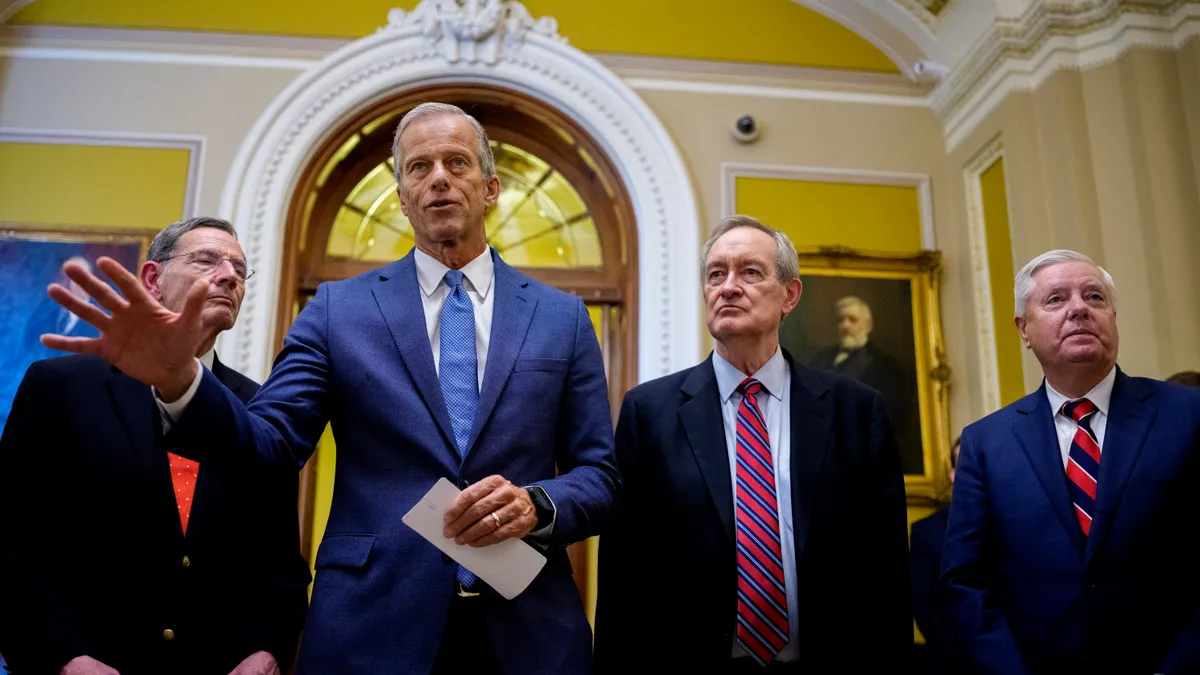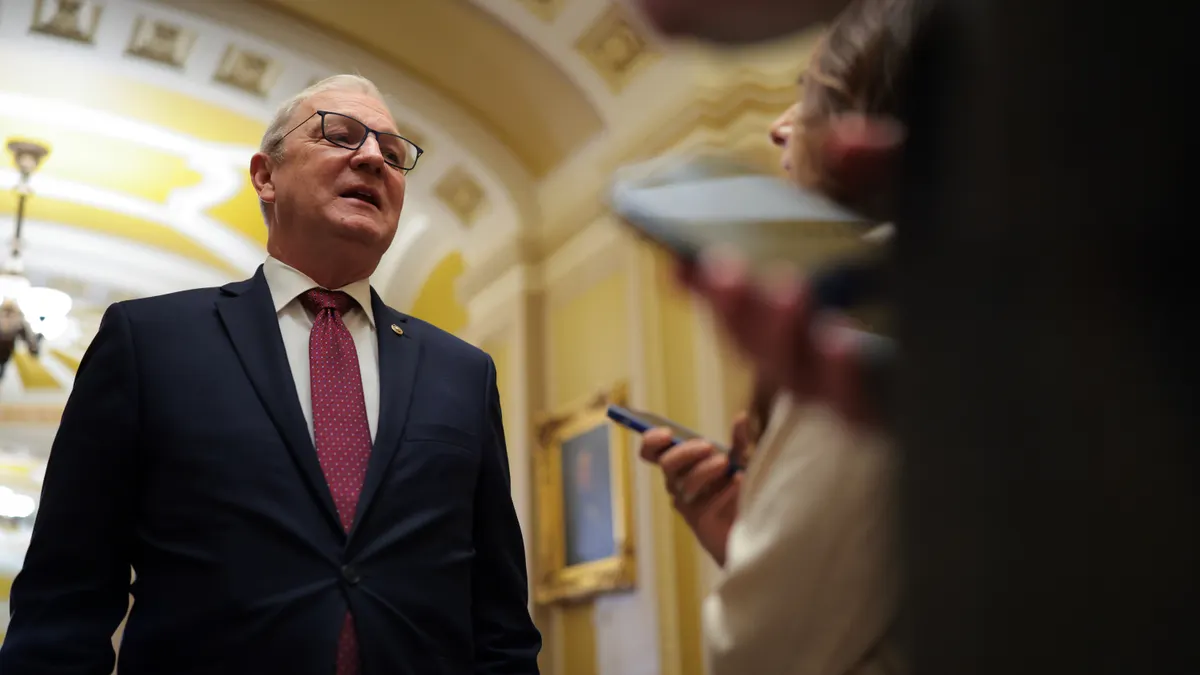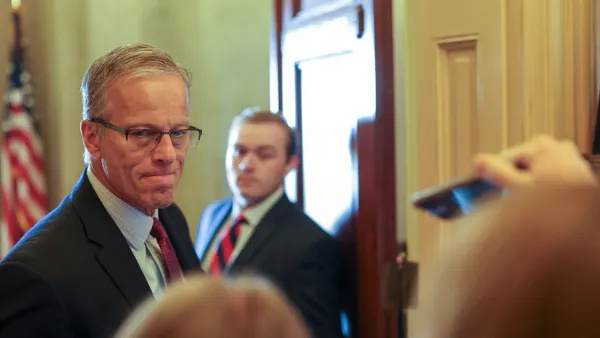The Massachusetts legislature last week passed a bill that could make the state one of only three in the nation to have an energy storage mandate. Gov. Charlie Baker (R) signed the landmark measure Aug. 9.
“Irrespective of the eventual target, Massachusetts could become the first non-West Coast state to set forth a storage goal,” Ravi Manghani, director of energy storage at GTM Research, said. “It could prove to be a blueprint for other states on the East Coast that share similar challenges related to resiliency, energy costs, and renewable and grid modernization goals.”
Massachusetts was already one of only a handful of states identified where commercial energy storage is already cost effective for customers, according to a recent GTM report.
Massachusetts began paving the way for more far-reaching storage policies over a year ago, when the governor announced a $10 million energy storage initiative in May 2015. The initiative includes a $10 million commitment from the state’s Department of Energy Resources (DOER) and a two-part study from DOER and the Massachusetts Clean Energy Center to analyze opportunities to support Massachusetts energy storage companies, as well as develop policy options to encourage energy storage deployment.
Under the recently passed bill, H. 4568, DOER has until year's end to decide whether to set a procurement target for electric companies to procure “viable and cost-effective energy storage systems” by a target date of Jan. 1, 2020. If found appropriate, DOER would have until July 1, 2017, to adopt the procurement targets. The targets would then be re-evaluated not less than once every three years.
To qualify as energy storage under the law, a storage system must reduce greenhouse gas emissions, cut demand for peak electrical generation, avoid new investment in generation, transmission or distribution assets, or improve the reliability of the grid.
The energy bill also requires the state’s utilities to purchase power from hydroelectric plants and from both onshore and offshore wind farms. The law calls for long-term contracts for 1,600 MW of offshore wind power and 1,200 MW of hydropower or other renewables.
Imported hydroelectric power purchases are a controversial subject in New England. Canada, which provides a large portion of the hydroelectric power in the region, is eager to increase those sales, but local renewable generators argue that large Canadian purchases could block them out of the market.
The new energy legislation also set out new ownership models for energy storage, stating that it may be owned by an electric distribution company. In many restructured states, storage is classified as generation, putting it out of reach of distribution only utilities.
That provision could put Massachusetts on “the cutting edge” in energy storage, says Jacqueline DeRosa, vice president of emerging technologies at Customized Energy Solutions in Philadelphia, one of the companies working with Massachusetts agencies on its Energy Storage Initiative.
It is not yet clear what form the procurement targets crafted by DOER will take, but distribution company ownership could mean that the Massachusetts’ mandate is “different than other state mandates,” DeRosa said.
Among the challenges storage faces are regulatory barriers that make it difficult to value its benefits. In some wholesale power markets, for instance, there are not mechanisms in place for compensating storage for services like load shifting and frequency regulation. Distribution companies, on the other hand, would be able to monetize the cost of installing a storage systems by putting it in the rate base.
“Distribution company ownership allows another way to integrate storage into the grid and fully monetize its value,” said DeRosa, adding it could quicken the pace of adoption of energy storage.
West Coast models
In the GTM report, Manghani said, “Massachusetts is furthest along on storage deployments and policy support.” He cited the $10 million pilot program and potential for an energy storage mandate.
One of the key drivers for the viability of commercial and industrial energy storage, however, is the level of demand charges for those customers, Manghani said. Eversource, the state’s largest utility, has peak demand charges that offer an 11% return on 1-hour energy storage systems for both small and large commercial customers, and a 7% internal rate of return on 2-hour systems, Manghani wrote in the report.
If the Massachusetts DOER does enact an energy storage requirement, it would join California and Oregon as the only other states in the Union with such a mandate.
California became the first state with an energy storage mandate with the passage of A.B. 2514 in 2010 and its implementation by the state’s Public Utilities Commission in 2013. Under the mandate, the states three investor owned utilities must procure a total of 1,325 MW of storage by 2024. The mandate also stipulates that the IOUs can own no more than 50% of the storage they procure.
In Oregon, H.B. 2193, passed in June 2015, requires Portland Gas & Electric and PacifiCorp, the state’s main electricity providers, to have a minimum of 5 MWh of energy storage in service by January 1, 2020. Oregon’s Public Utilities Commission is still working out the details of how the law will be implemented.
Of course, Massachusetts has not yet set its targets, but the examples of California and Oregon do provide some guidance, at least in terms of order of magnitude comparisons.
California’s target is about 2% of the state’s peak demand, while Oregon's is a maximum of 1% of peak load, notes Manghani.
“Massachusetts annual peak load is about 13 GW, so it is not completely unreasonable to think a target in the range of 130 MW to 260 MW,” he said, adding with a note of caution that all three markets are very different when it comes to resource mix, energy infrastructure and seasonality.
It remains to be seen what form Massachusetts’ storage mandate will take, but storage advocates are optimistic. They also note that the recently appointed head of DOER is familiar with storage and storage issues.
Judith Judson was appointed head of DOER in April 2015. She was previously director of emerging technologies at Customized Energy Solution and, prior to that, a vice president at Beacon Power, a manufacturer of flywheel storage devices.




















